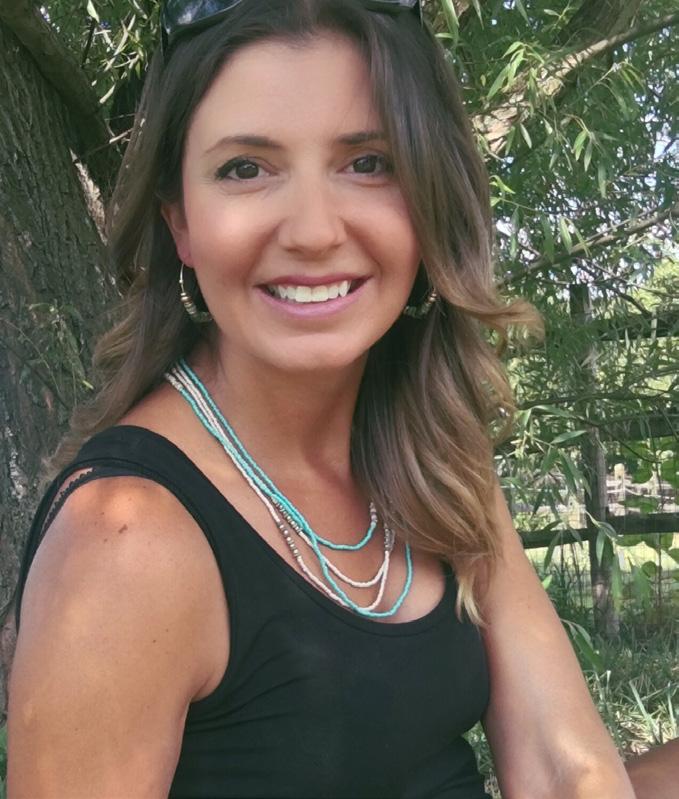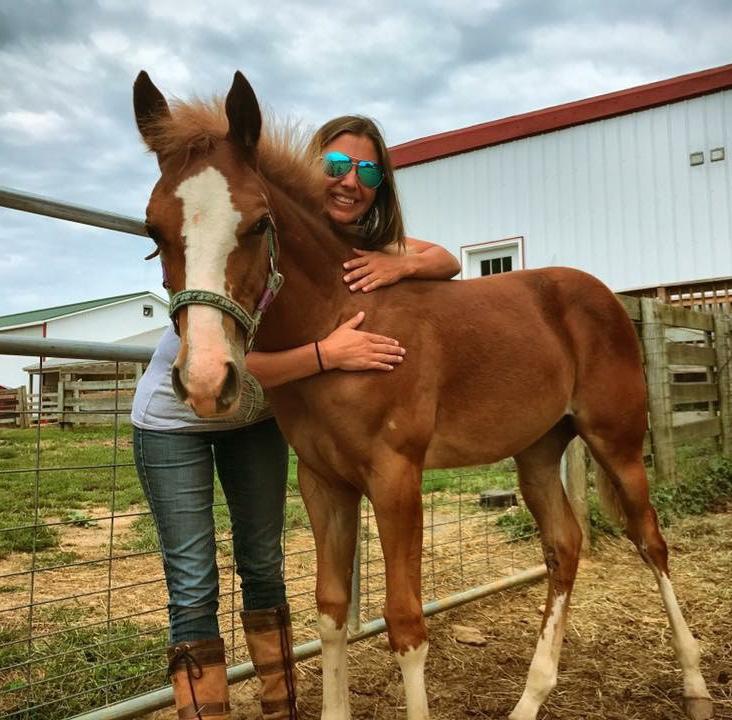
3 minute read
PRO POP QUIZ
Erin Clemm Ochoa is the CEO of Days End Farm Horse Rescue based in Woodbine, MD
THIS ISSUE’S QUESTION:
What is ‘humane education’ and how does it play a role in equine rescue?

DEFHR head trainer Sara Strauss greets a group of children visiting the farm; photo courtesy of DEFHR
Humane education is the idea that we can create a compassionate and caring society – and end the cycle of violence and abuse – by developing empathy, understanding, and respect for animals, people, and the environment. It’s something that we believe in wholeheartedly at Days End Farm Horse Rescue (DEFHR). Though the organization is a 501(c)3 non-profit horse rescue, and we’ll always have a component of rehabilitation, our team strongly believes that the future of equine welfare starts with community engagement and educating the public on topics related to humane education and animal welfare, so we place a lot of emphasis on developing one-of-a-kind programs for various ages and backgrounds.
Broadly speaking, our community outreach program at DEFHR is multifaceted. Horses that arrive at the facility come to us from law enforcement and animal protection agency impoundments, and as a “forensic farm,” we leverage the horses’ rehabilitation processes to provide continuing education classes and trainings for animal control and law enforcement professionals. At the same time, there is so much that volunteers and visitors can learn from these horses and their rehabilitation journeys, so the facility also serves as an eco-educational community center for all ages.

Humane education plays a critical role in DEFHR’s community outreach programs, especially in its youth programs
In fact, DEFHR is one of approximately 40 licensed Maryland Horse Discovery Centers, which means we are dedicated to playing an active role in educating the general public and helping to foster the horsehuman connection by assisting all ages and experience levels in learning about horses in a welcoming, beginner-friendly environment. Youth involvement in particular, is critical in our community outreach efforts. While many animal shelters have age restrictions, DEFHR is unique in that children as young as age five can volunteer or participate in several of our youth programs. I think this makes us wellequipped to take on the role of educator.
Since the pandemic, we’ve had to get creative when it comes to engaging with the community, and especially youth, since we’ve remained closed to the public. Last summer, we launched a “Camp-In-A-Box” program for kids, that helped us adapt our educational offerings to a virtual setting. It incorporated hands-on projects, DIY experiments, online videos, and activities that all tied back to our horses. We also incorporated activities that demonstrated why caring for the environment is important to DEFHR. Each week, campers learned about an environmental theme as part of “WE CARE” (water, erosion, composting, agriculture, recycling, and ecology = WE CARE) – this helped children understand why caring for the environment also helps the horses.
We feel strongly that we can effect change in equine welfare by empowering youth and future generations, but we also recognize the importance of engaging a broader audience. We’re currently developing a number of other virtual programs that will provide a portal into our work and into multilevel educational experiences. We also have plans to expand our footprint in Woodbine, Maryland, to accommodate a larger classroom for law enforcement trainings and seminars as well as an activity center for hands-on, family-friendly experiences.
Mahatma Gandhi said it best when he stated, “The greatness of a nation and its moral progress can be judged by the way its animals are treated.” At DEFHR, humane education is part of our ethos because we understand that it can benefit animal welfare and improve communities. The more we can play a role in helping to build stable and peaceful societies that are informed and empathetic, the more likely we will be to save more horses by putting a stop to neglect and abuse.
— ERIN CLEMM OCHOA, CEO, Days End Farm Horse Rescue
About Days End Farm Horse Rescue: For more than three decades, Days End Farm Horse Rescue has been renowned for working not only to prevent equine abuse and neglect, but also to educate the public about equine welfare, and help their staff, volunteers, and members of the public become better horsemen and horsewomen. Learn more about DEFHR‘s adoptable horses as well as their numerous education and volunteer opportunities at www.defhr.org, email them at welcome@defhr.org, or follow DEFHR on Facebook (@DEFHR) and Instagram (@4TheHorses).

Erin Clemm Ochoa pictured with a rescue foal; photo courtesy of DEFHR










